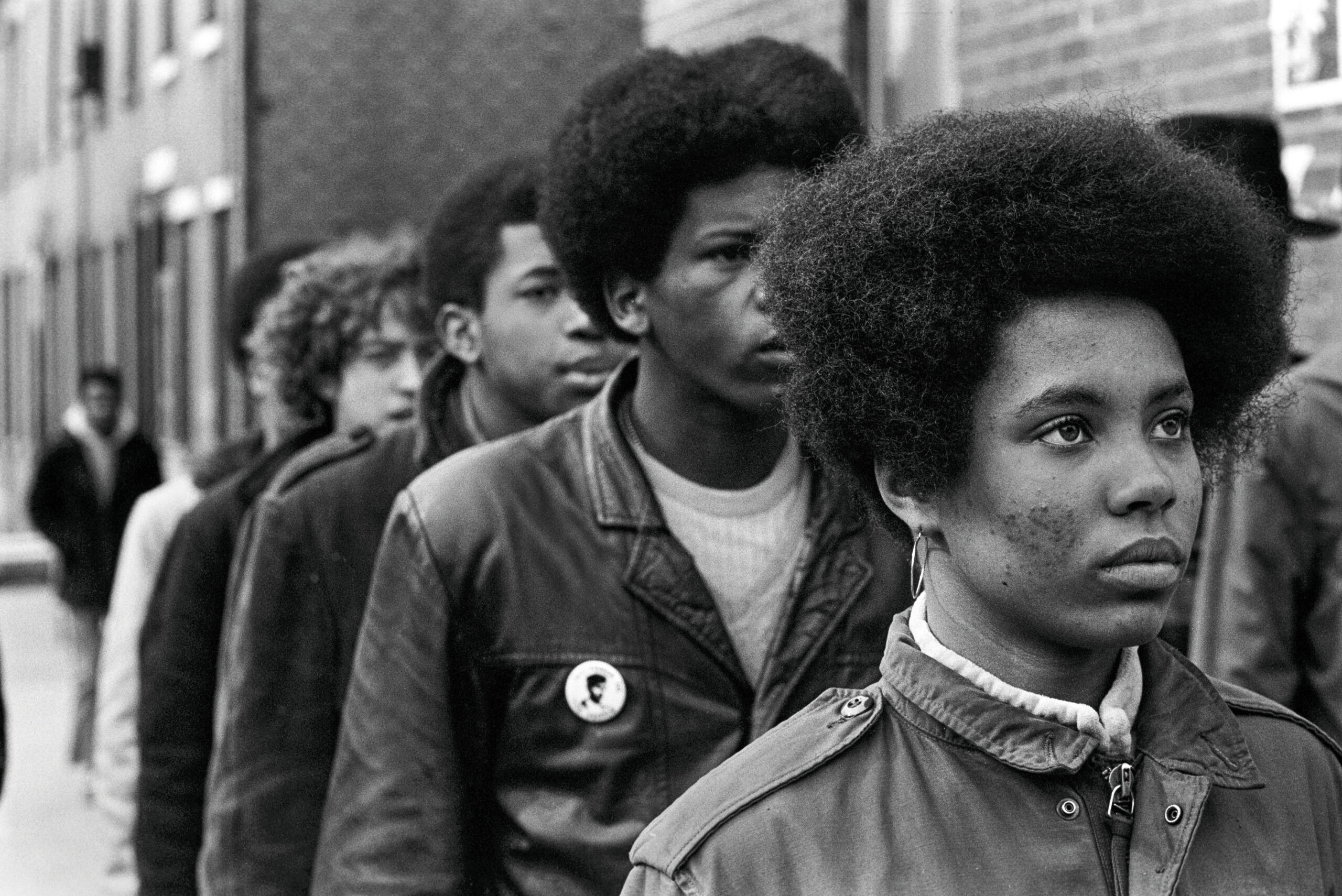Gallery of 11 photos
the slideshow
Huey P. Newton and Fred Hampton take center stage in dramatizations about their lives and roles in the Black Panther Party—and the group’s signature leather jackets have long projected a masculine image. Often overlooked, however, are the roles women played in shaping the movement.
With his third book on the Black Panthers, photographer Stephen Shames hopes to dispel that macho image and negative perceptions of the party—showing a different side of the political group. Titled Comrade Sisters and co-written with Panther alumna Ericka Huggins, the book spotlights the group’s female activists and leaders with pictures by Shames, an introduction by Angela Davis and short written contributions by Panther alums about their experiences. Stringing for national publications like the New York Times and Washington Post at the time, Shames, then a student at UC Berkeley, documented the Oakland-born group during its heyday in the 1960s and ’70s.
“The government and the right wing kind of want to portray the Panthers as kind of like Al-Qaeda, as a bunch of terrorists, and the left kind of idealized the Panthers,” Shames said. “The legacy of the Panthers was far more nuanced, and the women were a big part of that.”
In fact, scholars estimate that women comprised about two-thirds of the party, and many members, Shames observed, were teenagers when they joined. Shames told the Standard that women were integral to the party’s day-to-day operations. Women often ran the group’s flagship programs, including its free health clinics and popular breakfast program for school-age children. They would also take on smaller, but no less impactful acts of charity, like keeping lonely seniors company or taking them grocery shopping—and take to the streets to sell the party’s newspaper, also known as The Black Panther Black Community News Service.
“Being a Panther was a 24/7 thing. It wasn’t like a job that you showed up at 9 and went home at 5,” Shames said. “The Panther women would get up at like 4 or 5 in the morning, and they would get the food cooked, and the kids would come in […] and they would feed them, then they would clean up, and they would go out and sell the newspaper. They would man the Panther office and their clinics. […] They would go be advocates for the people.”
Ultimately, Shames hopes the book shows the women of the Black Panther Party were committed to service.
“What really this book is about, it’s about love. It’s about the love for the community,” Shames said.
You can check out some of Shames’ photos in our photo gallery.
Find the book at a local bookstore near you.
